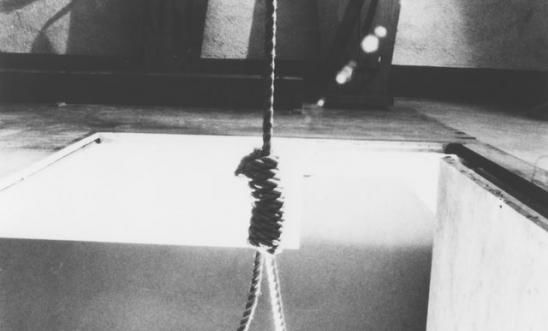
Press releases
Iranian teenager tortured into 'confessing' faces execution at weekend

Alireza Tajiki was only 15 at time of alleged crime making execution illegal under international law.
‘Iran’s bloodstained record of sending juvenile offenders to the gallows … makes an absolute mockery of juvenile justice’ - James Lynch
Amnesty International is calling on the Iranian authorities to halt the execution of a teenager who faces execution on Sunday despite claims he was tortured into making a false confession over a crime he was accused of committed at the age of 15.
Alireza Tajiki, now 19 years old, was sentenced to death in April 2013 after a court in Fars Province, southern Iran, convicted him of murder and rape primarily on the basis of “confessions” extracted through torture which he repeatedly retracted in court.
Tajiki’s execution is due to take place on Sunday 15 May in Shiraz’s Adel Abad Prison in Fars Province.
Tajiki was arrested along with several other young men in May 2012 on suspicion of murdering and raping his friend who was stabbed to death. He was denied access to a lawyer throughout the entire investigation process and put in solitary confinement for over two weeks. During this period he was subjected to torture and other ill-treatment, he said, including severe beatings, floggings, and suspension by his arms and feet, to make him “confess” to the crime. He later retracted the “confessions” and has since consistently maintained his innocence. However, his “confession” was still admitted as evidence during proceedings against him.
In April 2014, a year after Tajiki was first convicted, his verdict was quashed by a branch of Iran’s Supreme Court which found the investigation incomplete due to a lack of forensic evidence linking him to the sexual assault. It ordered the Fars Provincial Criminal Court to carry out further investigations and to examine his “mental growth and maturity” at the time of the crime in light of new juvenile sentencing guidelines in Iran’s 2013 Islamic Penal Code. The code allows judges to replace a death penalty with an alternative sentence if they there are doubts about a juvenile offender’s “mental growth and maturity” at the time of the crime.
In November 2014, the criminal court re-sentenced him to death, referring to an official medical opinion that said Tajiki had attained “mental maturity”. However, the court’s decision made no reference to concerns the Supreme Court had raised about the lack of forensic evidence, suggesting the investigation that had been ordered was not carried out. The court also relied once again on Tajiki’s forced “confessions” as proof of guilt, without conducting an investigation into the torture allegations. Despite these flaws, the Supreme Court upheld the sentence in a paragraph-long ruling in February 2015 that relied on the principle of “knowledge of the judge”, which grants a judge discretionary powers to determine guilt in the absence of conclusive evidence.
Amnesty International Middle East and North Africa Deputy Director James Lynch said:
“The Iranian authorities must immediately halt this execution and grant Alireza Tajiki a fair retrial where the death penalty and coerced ‘confessions’ play no part.“Iran’s bloodstained record of sending juvenile offenders to the gallows, routinely after grossly unfair trials, makes an absolute mockery of juvenile justice and shamelessly betrays the commitments Iran has made to children’s rights.”
Rampant use of death penalty
In January, Amnesty published a report showing that scores of juvenile offenders - possibly over 160 - currently languish on death row in Iran, in clear violation of the country’s international human rights obligations.
Last year Iran carried out more than 970 executions, believed to be the second-highest number anywhere in the world, behind only China.
Amnesty has repeatedly called on the Iranian authorities to establish a moratorium on all executions with a view to abolishing the death penalty entirely.